Date published: 15 April 2019
“A pleasure to meet you. I am just a humble butler. It is getting warmer little by little each day now, and we certainly are in Japan’s perfect season for going out and enjoying yourself outside.”
“One place that I warmly recommend to you is right where I am standing, Monzen-Nakacho. The neighborhood is located east of Tokyo Station, with the Sumida River flowing right by it. Many traditional, nostalgic shops stand side by side here, evoking an authentic atmosphere of old Edo’s beautiful, bustling downtown areas called shitamachi. It is also believed that Inō Tadataka, the man who created the very first modern map of Japan in the Edo period started his project from Monzen-Nakacho. Indeed, it is a wonderful place to go for a walk!”
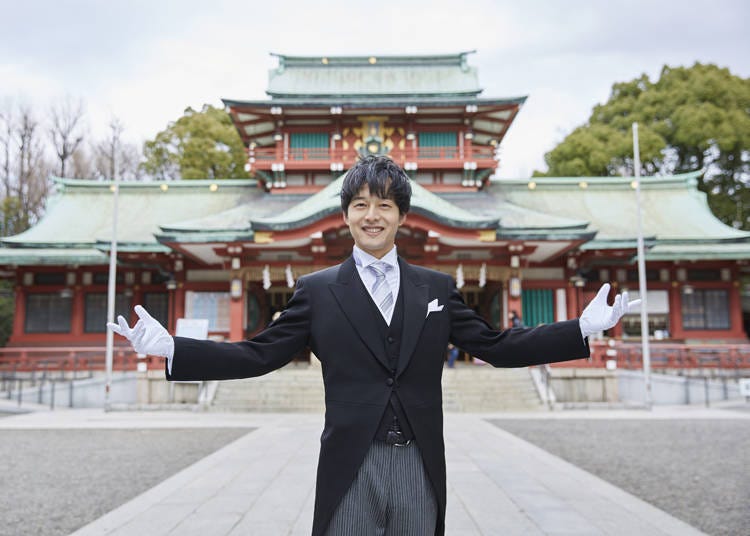
“Right, I am at Tomioka Hachiman Shrine, shouldn’t this Monzen-Nakacho be close from here…?”
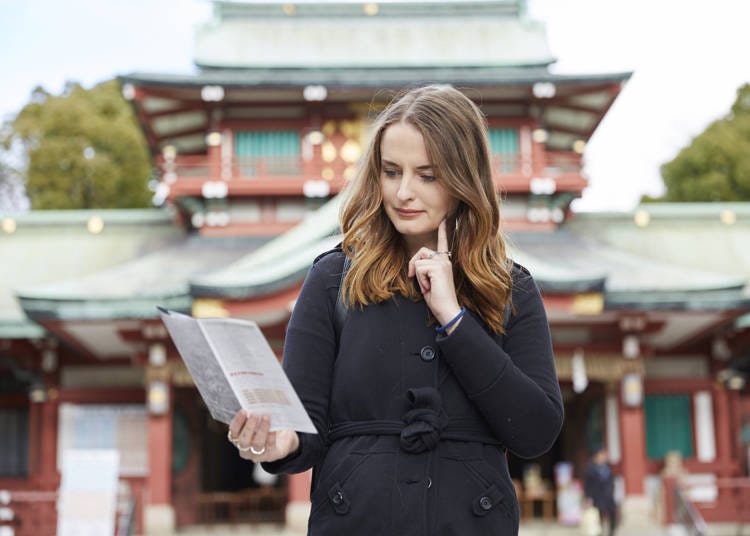
“Ah, I really don’t know the way…”
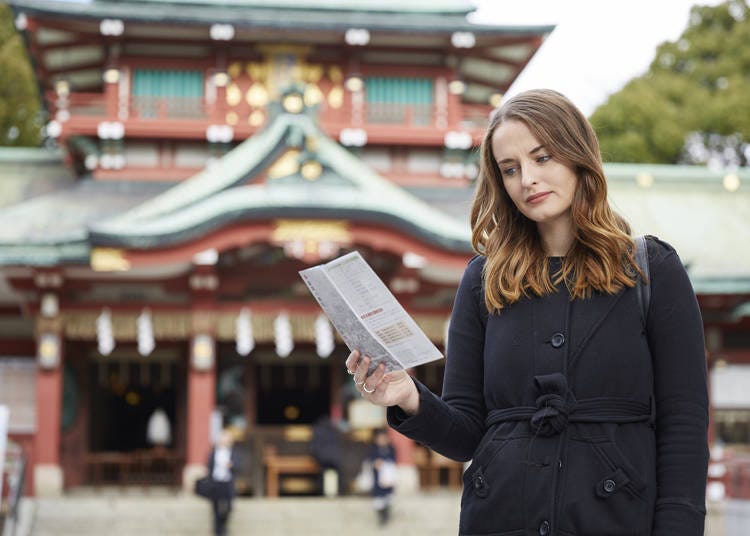
Female Tourist: (I really wanted to see the shrine and thought I’d be fine with my map. But where to go from here? Maybe I should ask that Japanese man over there.)
Female Tourist: “Excuse me! I think I am a bit lost. Would you kindly point me in the right direction?”
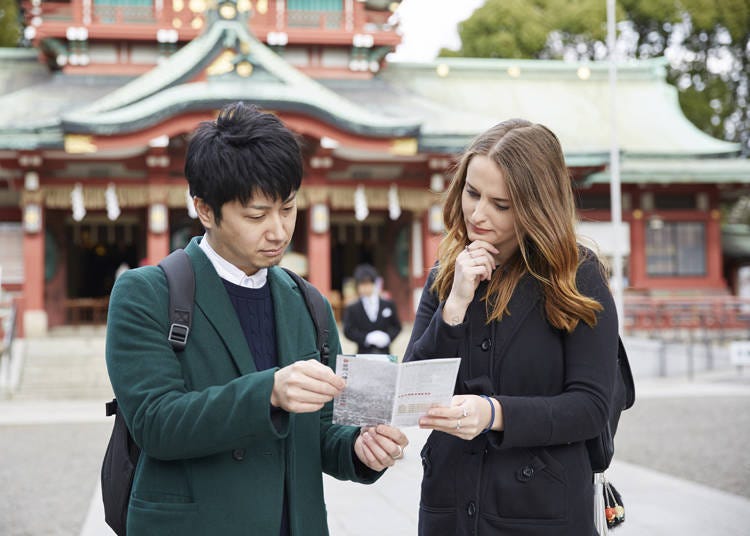
Japanese man: “Oh, er… I just came to Monzen-Nakacho because I had an appointment. Actually, it’s my first time here as well.”
Female tourist: “Oh, is that so.”
Japanese man: “Where do you want to go?”
Female tourist: “There are so many shops here in downtown, so I got lost. I just want to go to a place where I can see a lot of different things.”
Japanese man: “Now that you mention it… yeah, that does sound difficult.”
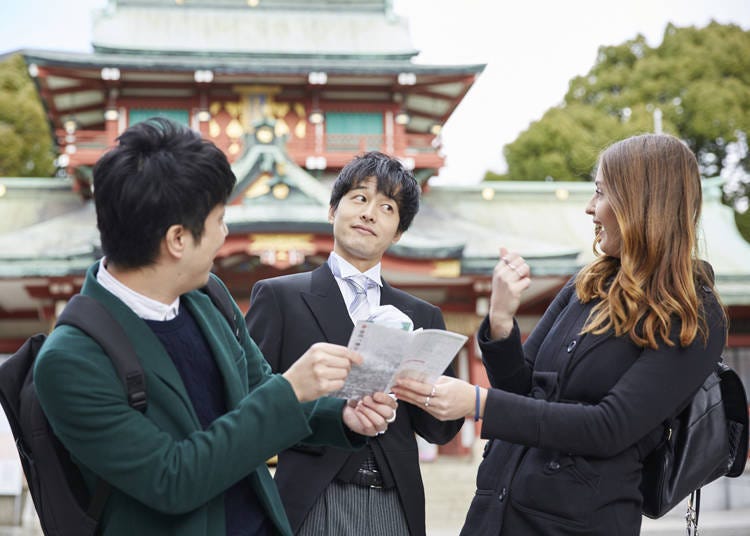
Mysterious butler: “You seem to be in trouble.”
Female tourist: “Yikes!”
Japanese man: “Whoa- wait, aren’t you THAT butler guy?!”
Mysterious butler: “Excuse me? Have we met before?”
Japanese man: (How can he not remember me?!)
Mysterious butler: “Be it as it may, you do seem to need guidance on how to properly enjoy shitamachi?”
Female tourist: “Yes, indeed.”
Japanese man: “That’s right. I don’t really know where to go and what to show her…”
“Oh my, oh my. Just like the last time, isn’t it? Even though you are Japanese, you have no clue, do you? (chuckles)”
Japanese man: “He DOES remember me!”
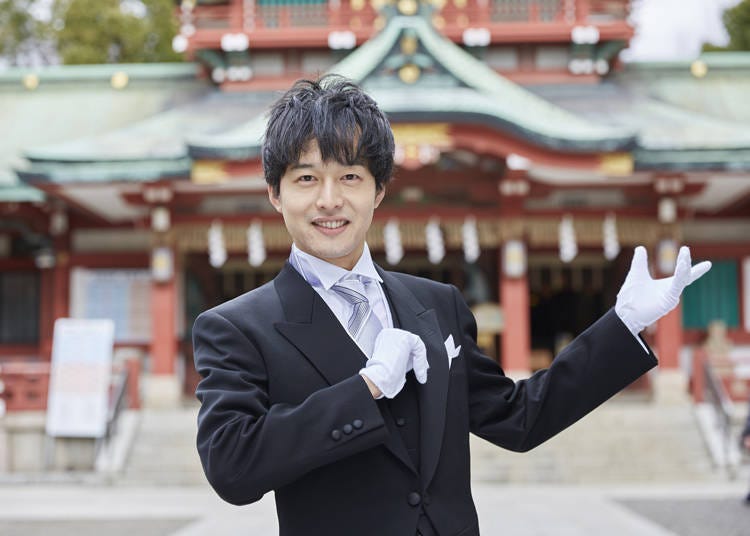
Butler: “Well then, the two of you, please be so kind and follow this nameless butler to discover the many charms that Monzen-Nakacho’s shitamachi, Tokyo’s old downtown, has to offer.”
Female tourist: “Really?! Japanese people are so nice!”
Japanese man: “Man, this guy really is…unique.”
Female tourist: “I’m from Australia, my name is Keira.”
Japanese man: (Ah man, she totally seems to trust this butler dude. Doesn’t she find him a bit weird? Everyone is immediately captivated by his smile. Well, it can’t be helped, I guess I will tag along one more time.) Umm, can I join?”
Keira: “Oh, yes! Let’s go together!”
Japanese man: “Thank you. My name is Igarashi. Nice to meet you!”
Butler: “Well then, Lady Keira, Mister Igarashi. Shall we?”
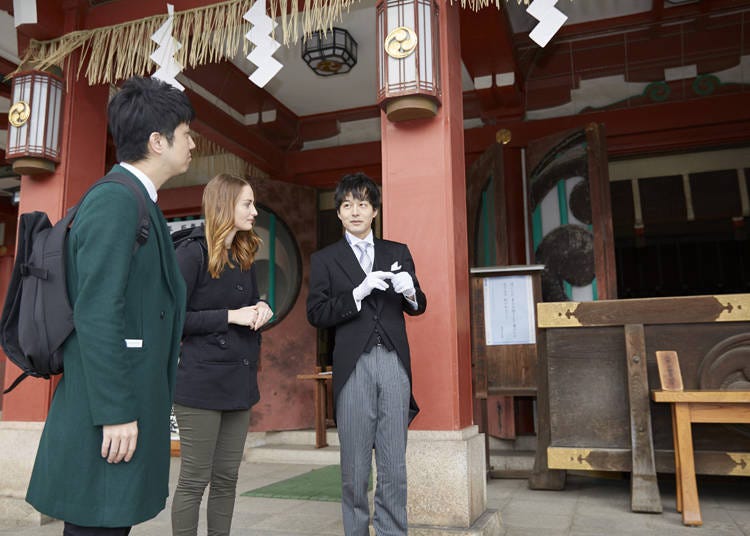
Butler: “Before we leave, however, let’s stay a moment longer at Tomioka Hachiman Shrine and do omairi, praying at the shrine.”
Keira: “Omairi? Oh yes, I wanted to do that properly at least once!”
Butler: “This shrine is also lovingly referred to as Fukagawa no Hachiman-sama, or Master Hachiman of Fukagawa. Built in 1627, it is still treasured by everyone in shitamachi as the largest Hachiman shrine in Edo. Festivals are held on the 1st, 15th, and 28th of each month. It gets very busy.”
Igarashi: “What kind of monthly festivals are these?”
Butler: “Everyone can attend the festival that is held at the main hall and an ennichi is taking place, with around 100 individual stalls around the Monzen-Nakacho Station.”
Keira: “Ennichi! That’s a Japanese festival, right?”
Butler: “This place is also known as the birthplace of sumo and for about 100 years since 1684, tournaments have been held on the shrine’s precincts. The Yokozuna Stone, a sumo memorial on the shrine precincts, is a remnant of this time.”
Keira: “Sumo is also really popular overseas as an integral part of Japanese culture. I love watching it, too!”
Butler: “I am pleased to hear that. Now then, shall we pray?”
Keira: “Yes! But… I don’t know how to do it properly.”
Igarashi: “Uuh… I am not too sure myself, actually.”
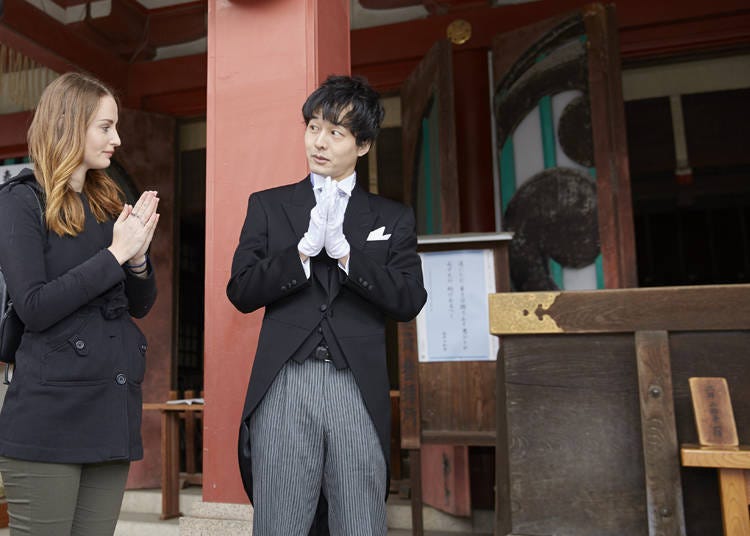
Butler: “Allow me to teach you, then. First, we clean our hands and mouth at the water basin called temizuya at the entrance to the shrine grounds. After that, we follow the Two Bows, Two Claps, One Bow before the shrine itself.”
Keira: “The what?”
Butler: “Simply put, we do two deep bows, clap two times, and then do our prayer. Finally, we bow deeply one more time.”
Keira: “Ah okay, that sounds simple enough!”
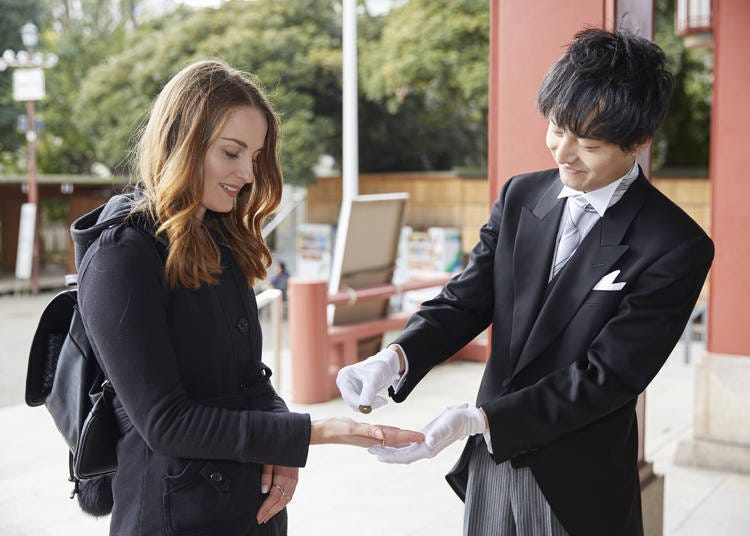
Butler: “Shall we throw this five yen coin in the offertory box before you pray?”
Keira: “Thank you! Alright, let’s all do omairi together! (clap, clap)”
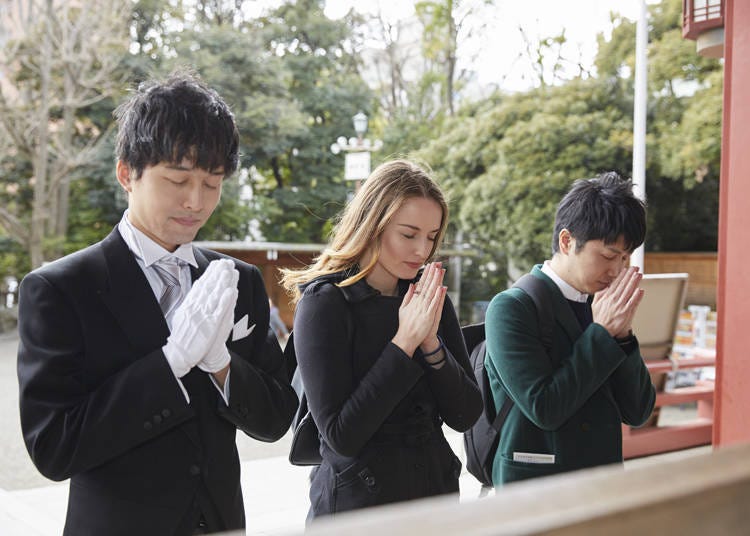
All three: “… … …”
Igarashi: “Hmm, what should I ask for…”
Keira: “I asked to make my Japan trip even more fun and enjoyable!”
Butler: “Ah yes, I also prayed for a wonderfully pleasant journey for Lady Keira.”
Igarashi: (Man, this guy sure is sly…)
Butler: “Having said a prayer, shall we be on our way?”
Keira: “Where are you going to take us?”
Butler: “Oh, allow me to surprise you.”
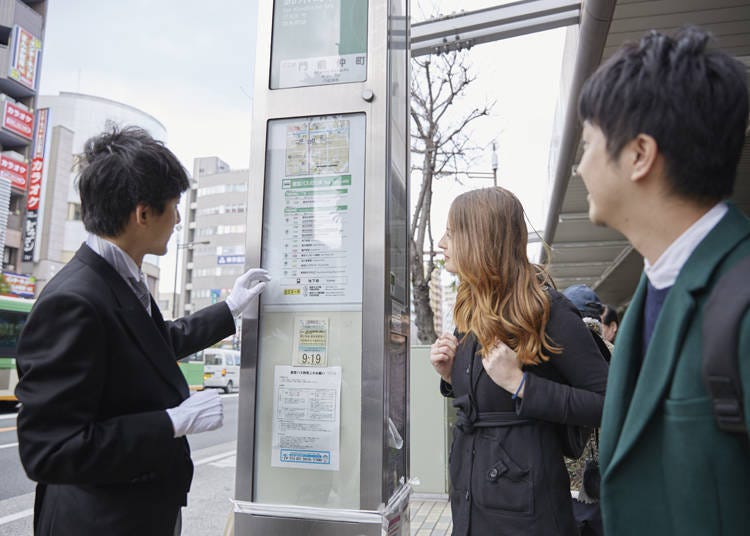
Butler: “We shall ride the bus from here.”
Keira: “The bus? I don’t know the Japanese bus system, though.”
Butler: “Please do not worry, it is not complicated at all.”
Igarashi: “Oh, the bus is about to arrive!”
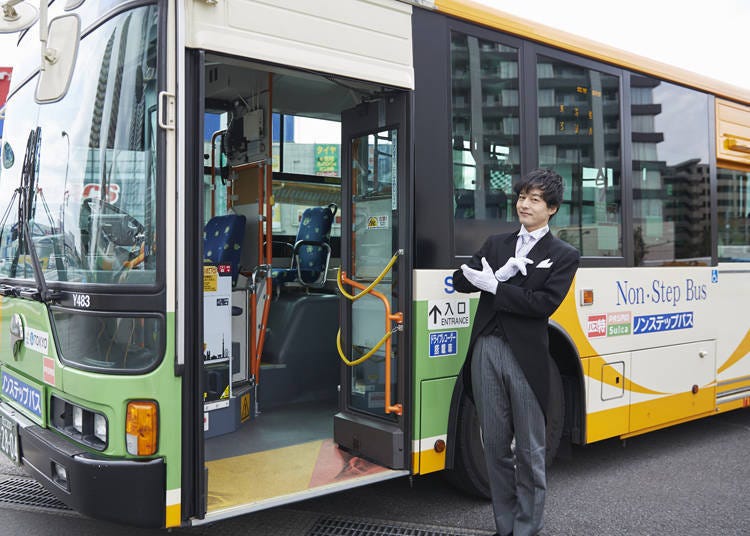
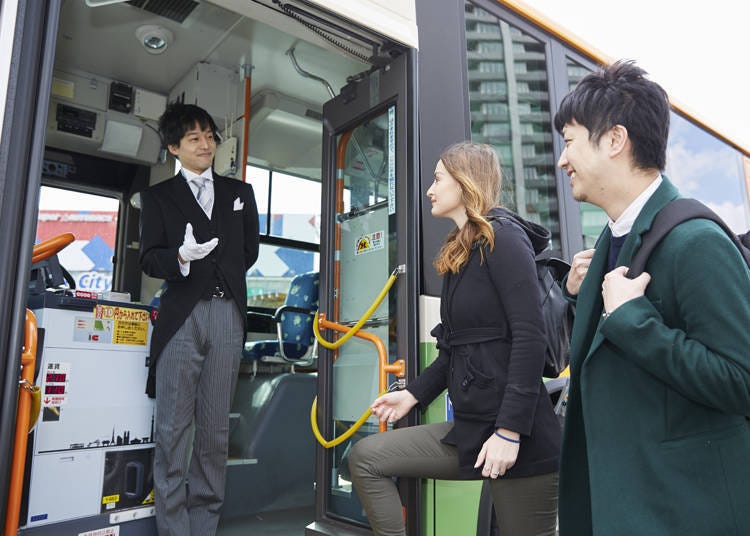
Butler: “Please mind your step, the two of you.”
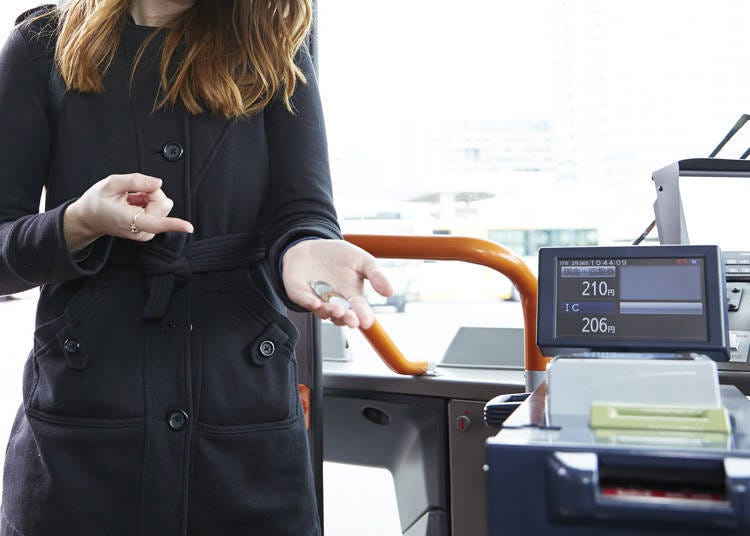
Butler: “The Toei Buses use a prepayment system. You merely need to prepare the fare in advance and put it in the fare machine at the entrance of the bus.”
Keira: “Ah, I see. But when I don’t have any spare change on me, will that not cause me to stress out?”
Igarashi: “There are change machines in the vehicle, but yes, when it is crowded, even Japanese people will start to stress out.”
Butler: “In that case, please do make use of this convenient little thing here.”
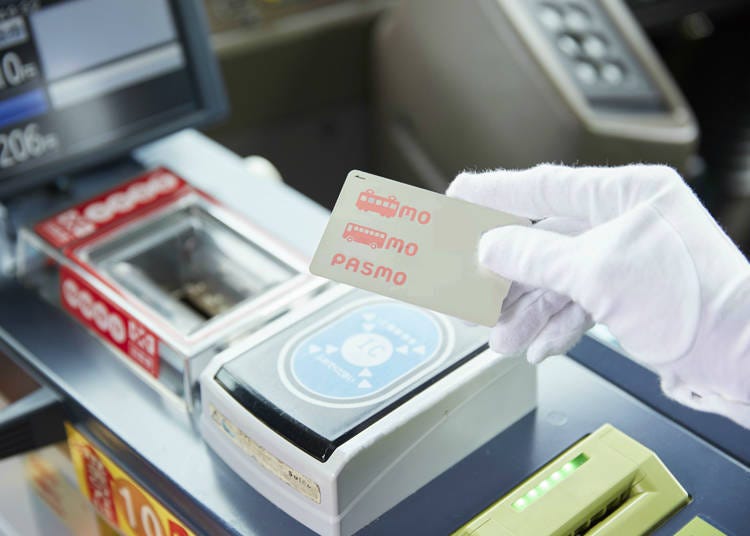
Butler: “Tadah! The chargeable IC card, used for electronic payment.”
Keira: “Wow!”
Butler: “You can pay with this IC card in Toei buses. Simply touch the device with your card and the payment is complete. This convenient card also works for trains, so charge it once and you don’t have to worry about change or else when traveling through the city.”
Keira: “This is such a convenient system, especially for tourists! All settled with one touch! An indispensable gadget for traveling in Japan, isn’t it.”
Butler: “Go ahead and find a seat right after you have paid. If there is no free seat available, please do make sure to hold on to a strap or handrail, lest you topple over.”
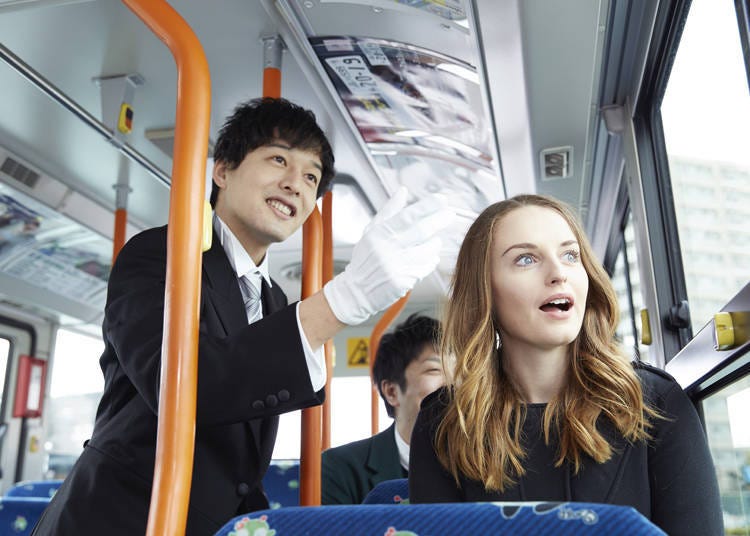
Butler: “The charm of riding a bus certainly is being able to enjoy the scenery of the city. To get an authentic impression of how people live there, the heartbeat of the city, so to say, as well as seeing parks, rivers, and residential areas.”
Keira: “A mom that walks home with her groceries, a student that hurries to school, businesswomen and men on their lunch break… Seeing the day to day life in Japan is a unique experience that you won’t be able to find in any kind of guidebook.”
Igarashi: “Miss Keira, do you like Japanese buses?”
Keira: “Oh, yes! Buses in Australia tend to be late, and people don’t line up properly. In Japan, however, the buses are really reliable and there are actual queues. Some passengers even offer their seat to the elderly, and everyone is so kind and polite to each other!”
Butler: “I am very pleased to hear that, Lady Keira. We will arrive at our destination very soon, by the way.”
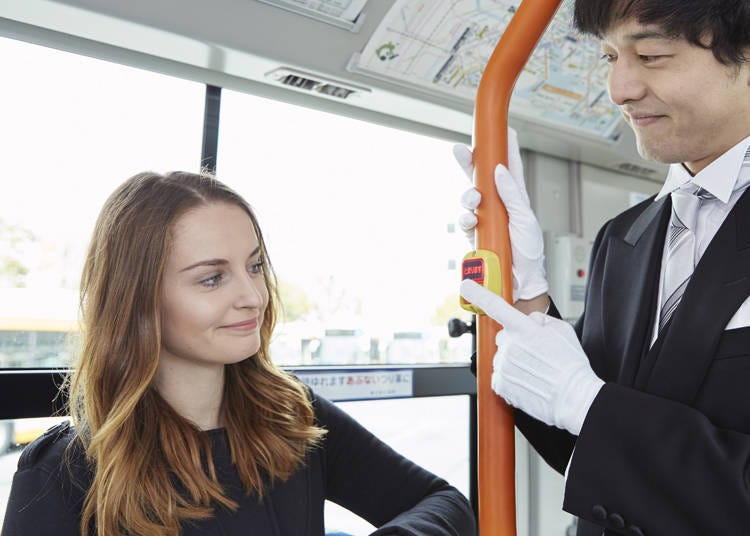
Keira: “What to do when I want to get off the bus?”
Butler: “Check the bulletin board or listen to the announcement to confirm that your stop is next, then press this button. This signals that you would like to get off at the next stop.”
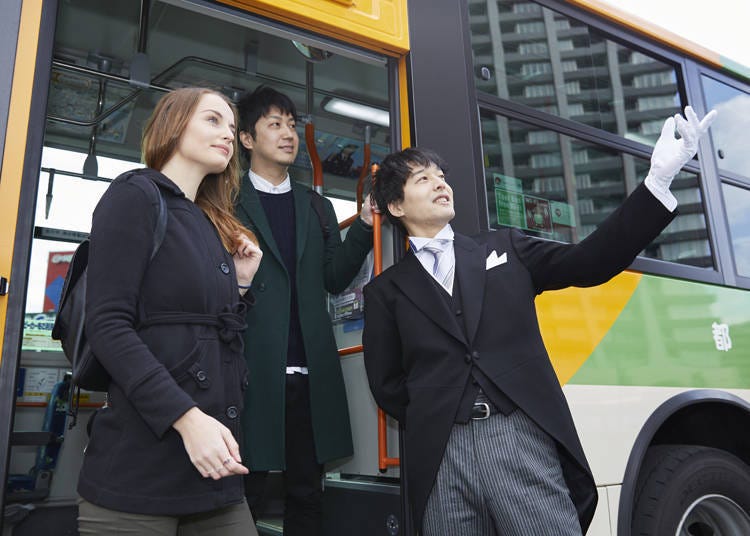
Butler: “Right, here we are. Mind your step when getting off the bus, please.”
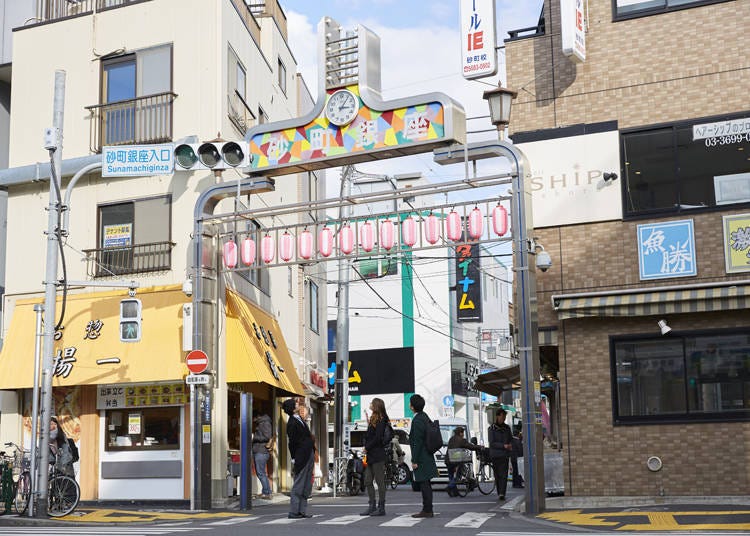
Butler: “Here is the place that I wanted to introduce you to: Sunamachi Ginza Shotengai.”
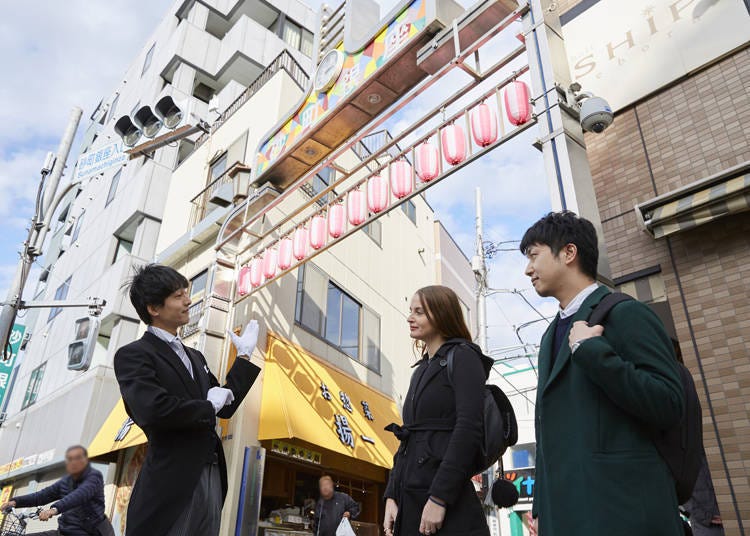
Keira: “Shotengai?”
Igarashi: “That means shopping street. In Japan, expect to find a variety of little shops and stalls in a shotengai, such as fish stores, corner shops, bakeries, and so on.”
Butler: “Sunamachi Ginza Shotengai first opened in 1958 and today, it is 670 meters long with around 180 individual shops and stalls lining up next to each other. Every October, an event called the Baka Ne-Ichi, or Market of Ridiculously Low Prices takes place, and if it coincides with a weekend or holiday, around twenty-thousand people flock to Sunamachi.”
Keira: “Amazing. Even now, there are a lot of people coming and going.”
Butler: “May I introduce you to my shop recommendations, then?”
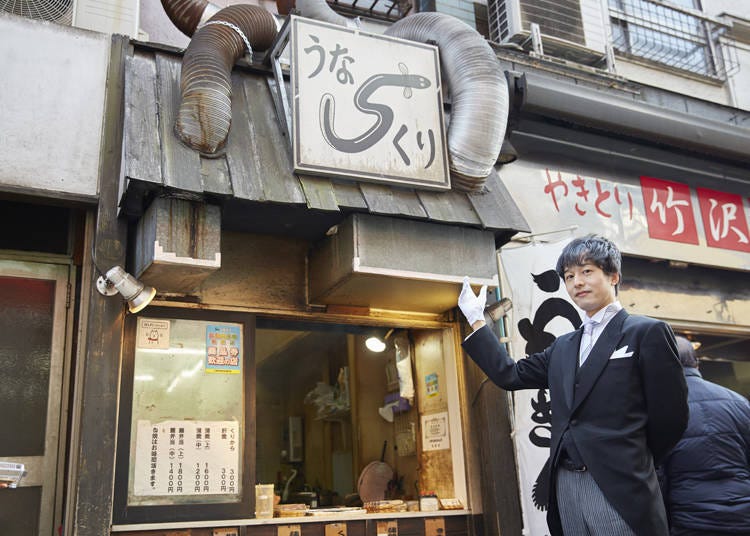
Butler: “The first one is right here. Unakuri Five.”
Igarashi: “Hum, that signboard… is that an unagi shop?”
Keira: “Japanese eel? In Australia, eel is also eaten by quite a lot of people! Oh, I want to try!”
Butler: “This shop specializes in skewered unagi.”
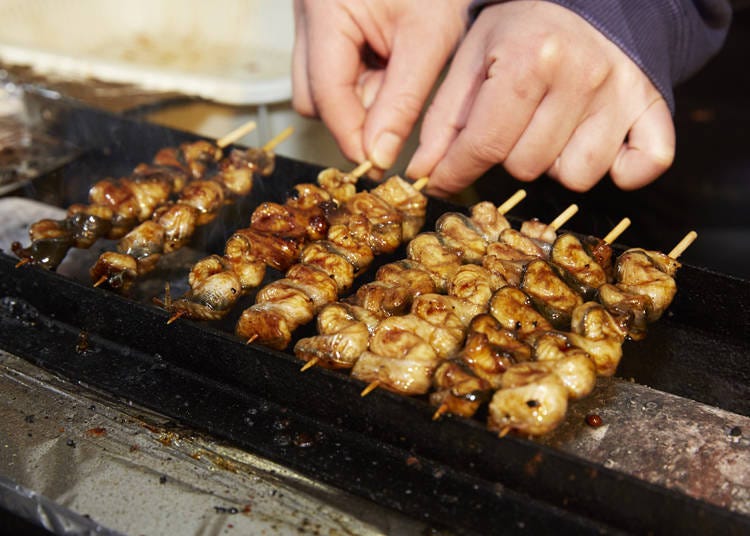
Unagi skewer: 300 yen (tax included)
Keira: “Mmh, I can smell the sweetness of the sauce. That really makes me hungry!”
Butler: “Most people think of the more elegant unaju, broiled eel in a lacquered box, when thinking about Japanese eel dishes. But here, one unagi skewer is sold for 300 yen. Eating eel in a casual way is characteristic of this little shop. A lot of international tourists come here as well. In fact, you will find people from all walks of life savoring the skewered unagi.”
Igarashi: “Let’s eat already!”
Butler: “Well then, one skewer per person?”
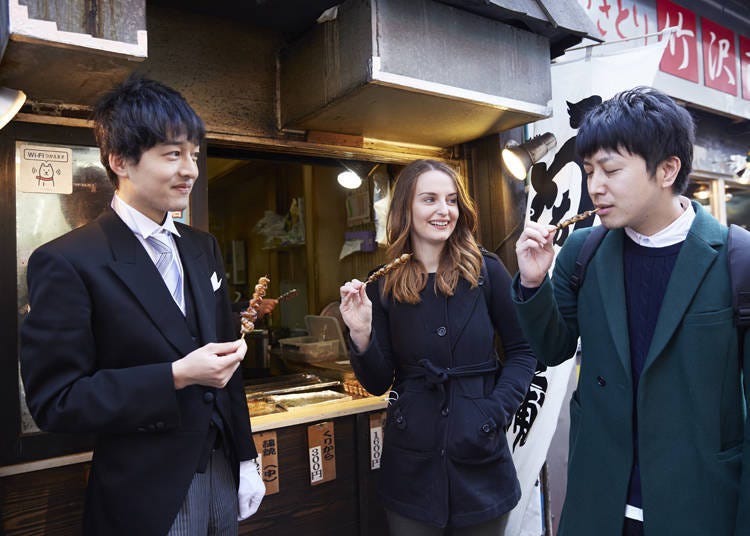
Igarashi: “Oh, wow! The eel is really soft and juicy. Come on, you two, try it!”

Keira: “Mmh, it’s so fluffy! I love both the aroma and the taste. And I had no idea that the sauce would go so well with the eel!”
Igarashi: “Don’t hold back Mr. Butler, it’s best when it’s fresh off the grill!”
Butler: “Well… I suppose you are right.”
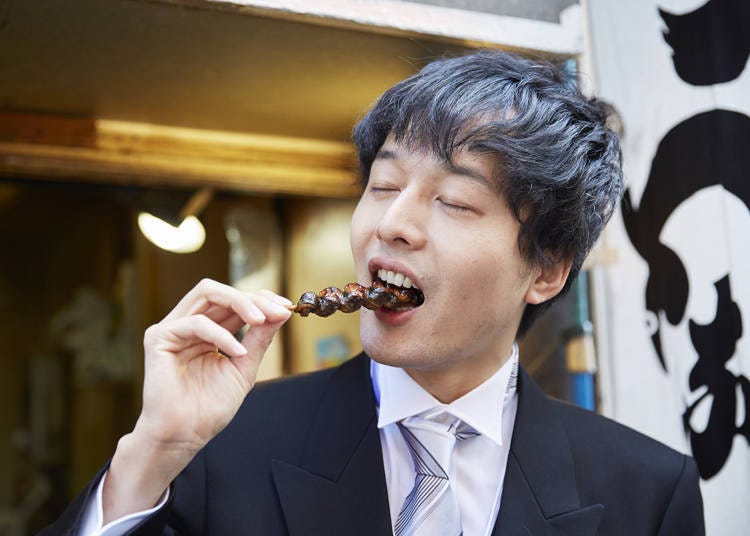
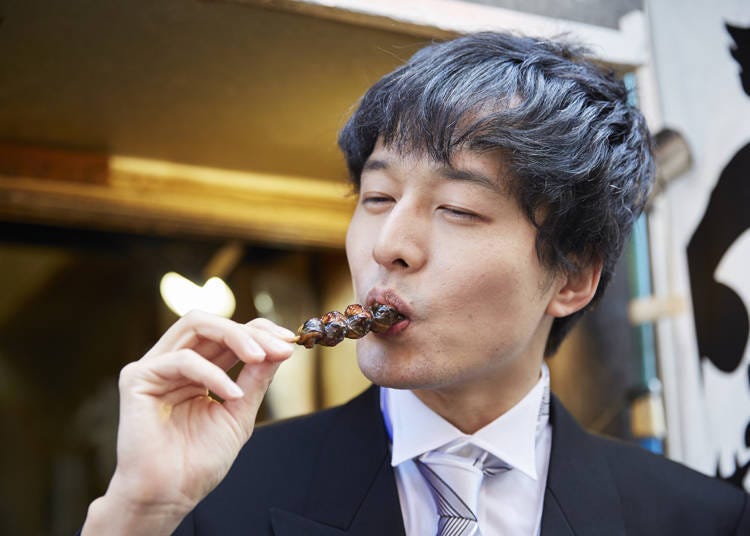
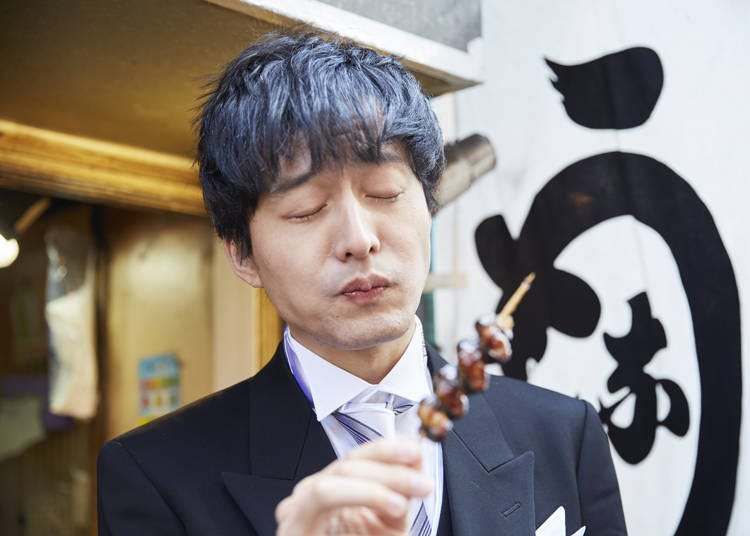
Butler: “Mmmh. This is exquisitely delicious! The eel is so soft, you barely have to chew it and the taste of the sauce lingers pleasantly on my tongue. Ah, I cannot stop eating… at this rate, I will start to scorn the belly part of the unagi, as well as the rice it is served with. (grins)”
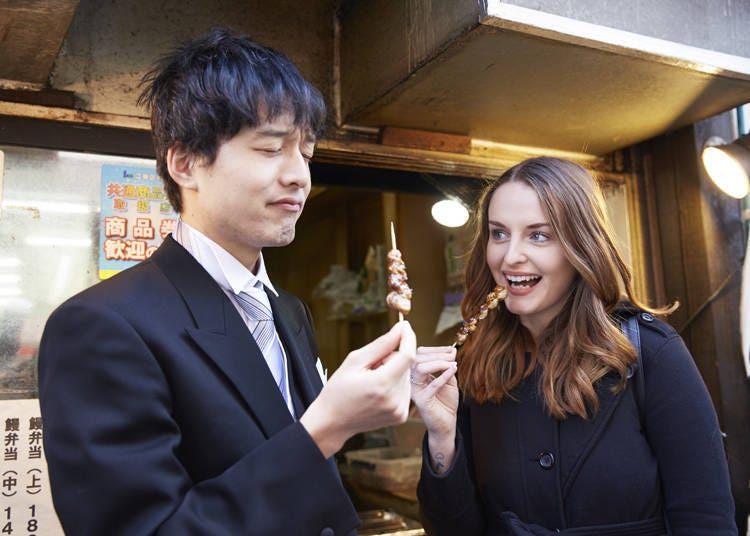
Igarashi: (Will this guy ever stop rambling?)
Butler: “Oh, pardon me. Shall we move on to the next shop?”
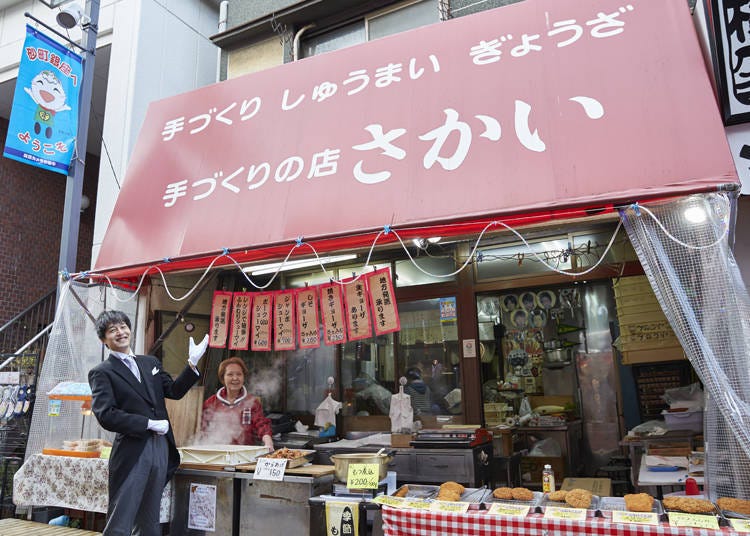
Butler: “Our next stop is Homemade Cuisine Sakai. This delicacy shop was even featured in Kodoku no Gourmet.”
Keira: “Kodoku what? What is that?”
Igarashi: “You don’t know Kodoku no Gourmet?! It’s one of the most popular gourmet manga in Japan! The main character is a businessman and in every chapter, he visits a restaurant and eats its specialties. Those shops that have been featured in the manga have become somewhat of gourmet pilgrimage spots for fans. No way that I am visiting one myself right now, here in Monzen-Nakacho!”
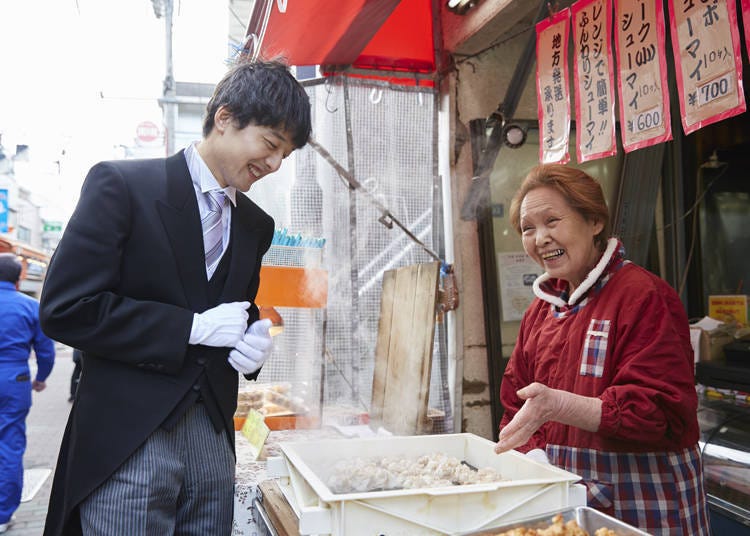
Shop Owner: “Our specialty is our homemade shumai, Chinese pork dumplings.”
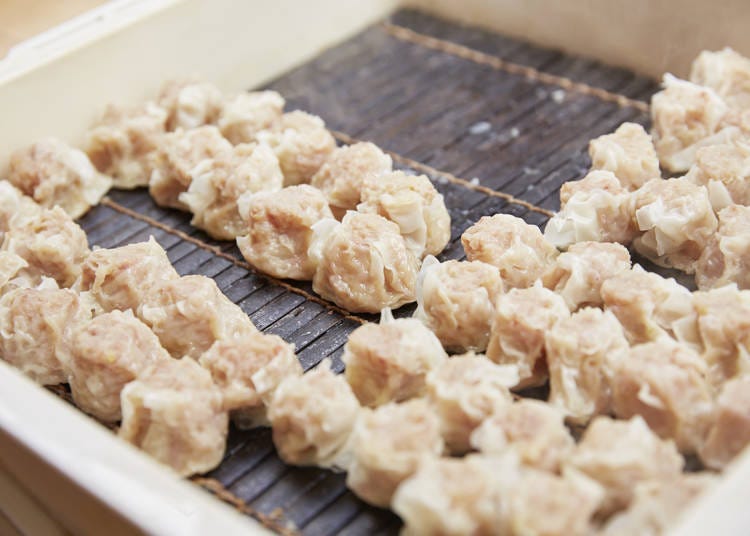
10 pork shumai (small): 600 yen (tax included)
Keira: “They look piping hot. And really, really delicious!”
Butler: “Shall we start with those famous shumai, then?”

Keira: “Mmm! So juicy!”
Igarashi: “The savory meat juice comes pouring out with the first bite but the shumai doesn’t seem greasy at all! I’m not surprised that Sakai is famous for this! This might also be really good with white rice.”
Butler: “I am pleased to see that you enjoy yourselves. May I help myself to one as well?”
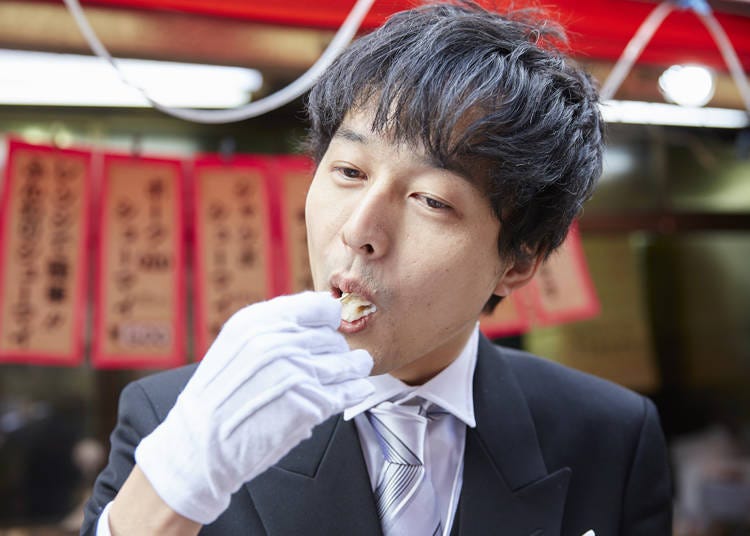
Butler: “Mmm, you were absolutely right. The soft juiciness is exquisite. The hot juice pouring out of the shumai really carries the savory taste of the meat. I could eat dozens of those…”
Igarashi: (This guy is quite the glutton, isn’t he.)
Butler: “Does anything else pique your interest, Lady Keira?”
Keira: “These fried things there look amazing. Ebikatsu… shrimp cutlets?!”
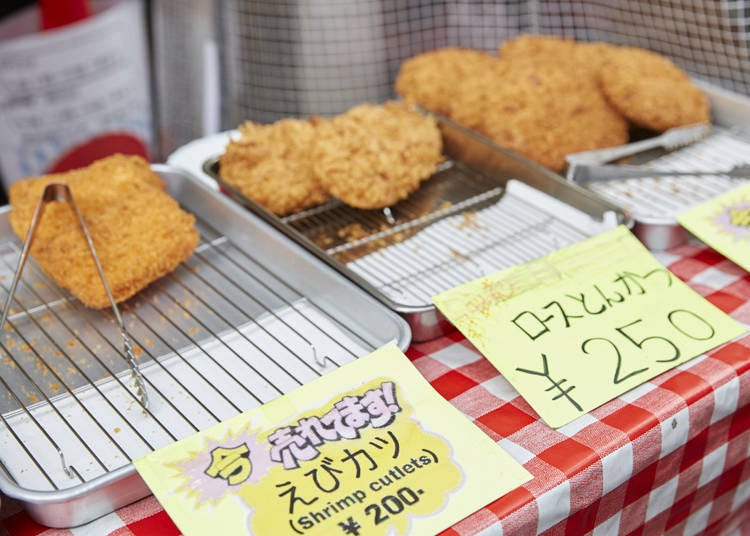
Ebikatsu: 200 yen (tax included)
Igarashi: “These are fried cutlets made out of surimi, minced shrimp meat. That’s Japanese B-grade cuisine.”
Keira: “Huh, that sounds delicious! Shrimp and lobster are classic ingredients of Australian cuisine. I want to see what the shrimp cutlet tastes like!”
Butler: “Well then, let me get this for you.”

Keira: “The outside is crispy, the inside is very tender! And I can taste the subtle sweetness of the shrimp. I’ve eaten a lot of shrimp dishes in my life but never in the form of such a cutlet. It’s extremely delicious and for 200 yen also quite a steal! For that price, I would eat this every single day. I envy the Japanese!”
Butler: “I am glad that you like it, Lady Keira.”
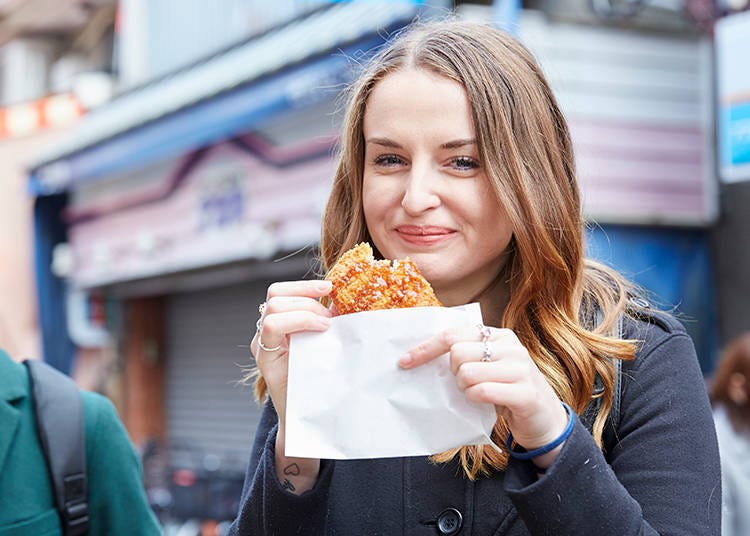
Keira: “Japan’s shotengai shopping streets rally are a lot of fun! There are dozens of shops that wait to be explored, and everyone here is so welcoming and friendly. The shopkeepers greet tourists like me like everyone else! Guidebooks usually only introduce you to glitzy, famous places but these little shopping streets in Tokyo’s shitamachi areas are must-sees.”
Igarashi: “I don’t think I would have gone to a shotengai of a neighborhood I don’t know but even for a Japanese person like me, this was so much fun. And don’t miss out on the homemade food! True gourmet experiences can be made here! It’s also an amazing place to find unique souvenirs.”
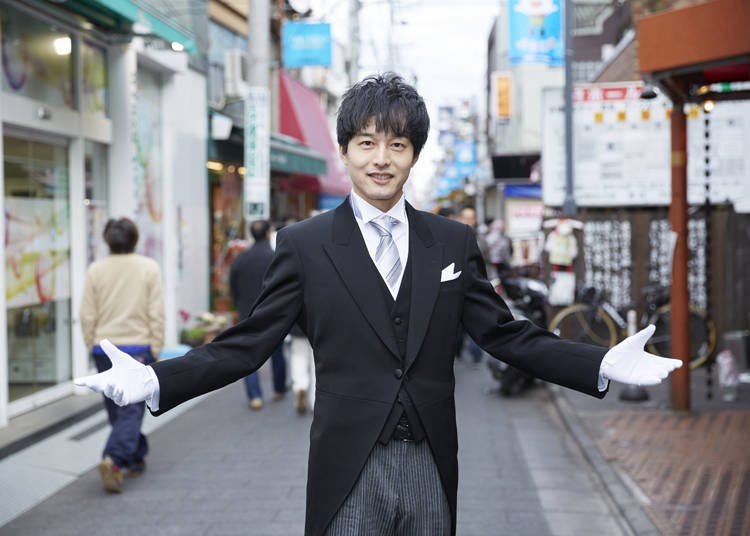
Butler: “Precisely. Why not take a Toei bus from time to time and explore Tokyo’s shitamachi neighborhoods? I am sure that there are many places all around Japan that you have not explored yet. I urge you to come see Tomioka Hachiman Shrine and Sunamachi Ginza Shotengai for yourself!”
※PASMO is a registered trademark of Pasmo Co., ltd.
Today’s Half Day Tour in Monzen-Nakacho:
-
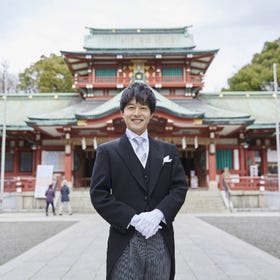
Tomioka Hachiman Shrine
富岡八幡宮
-
Address
1-2-3, Tomioka, Taito-ku, Tokyo -
Nearest Station
Monzen-nakacho station
-
Phone Number
03-3642-1315
-
Address
-
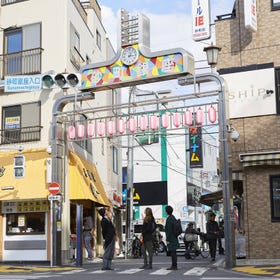
Sunamachi Ginza Shotengai
砂町銀座商店街
-
Address
3, Kitasuna, Taito-ku, Tokyo -
Nearest Station
Kinshicho Station
-
Phone Number
03-3644-5854
-
Address
City Bus Details:
Toei Bus都07 (via Sakagawa Kinchishou Station)
From Monzen-Nakacho (bus stop ③) to Kitasuna Nichome
Duration: about 20 minutes
Bus interval: 5 to 7 minutes
Fare: 210 yen per adult, 206 yen with IC card
Please note that the東22 bus (for Kinchishou Station) and the東20 bus (for Kinchishou Station) leave at the same bus stop ut will not stop at Kitasuna Nichome.
Service Shots of the Mysterious Butler, Snapped by Igarashi (Does This Dude Think He’s Cute or What?!)
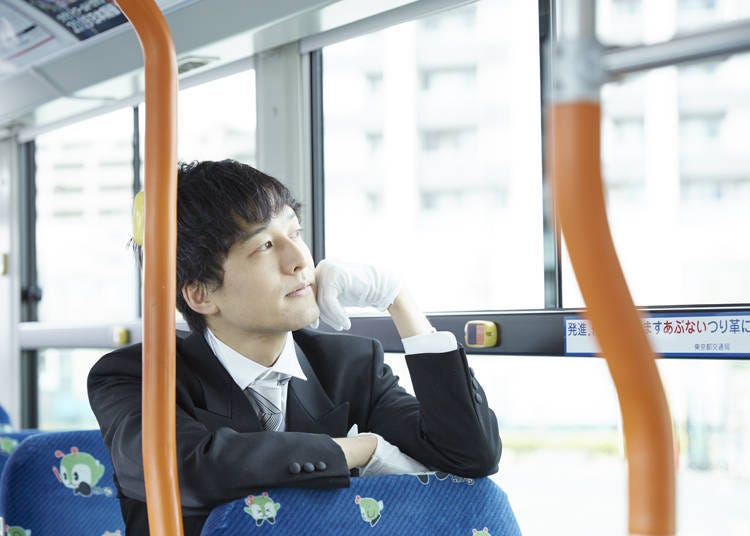
In the Toei bus
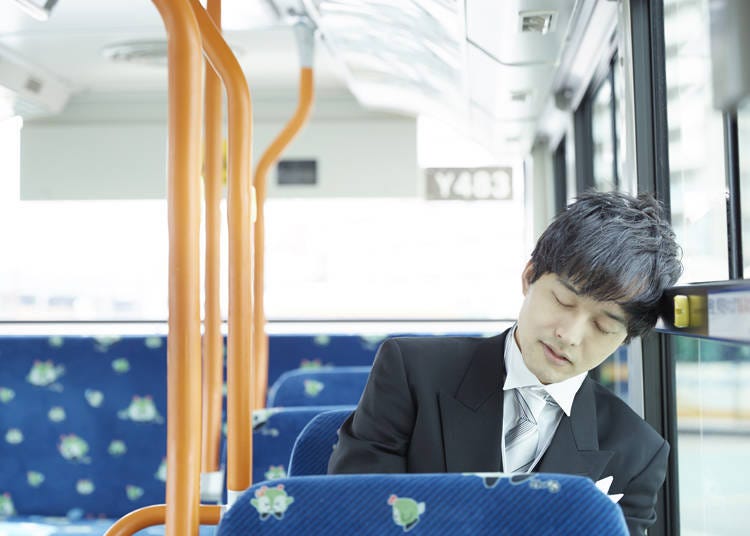
In the Toei bus
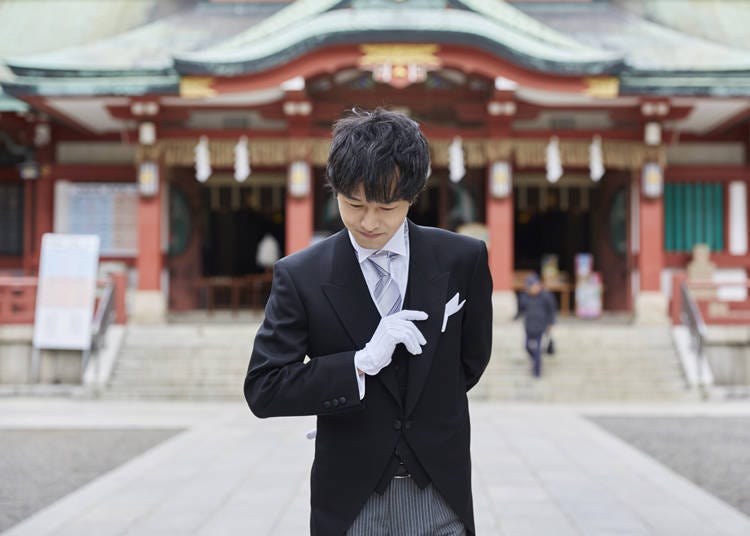
At Tomioka Hachiman Shrine
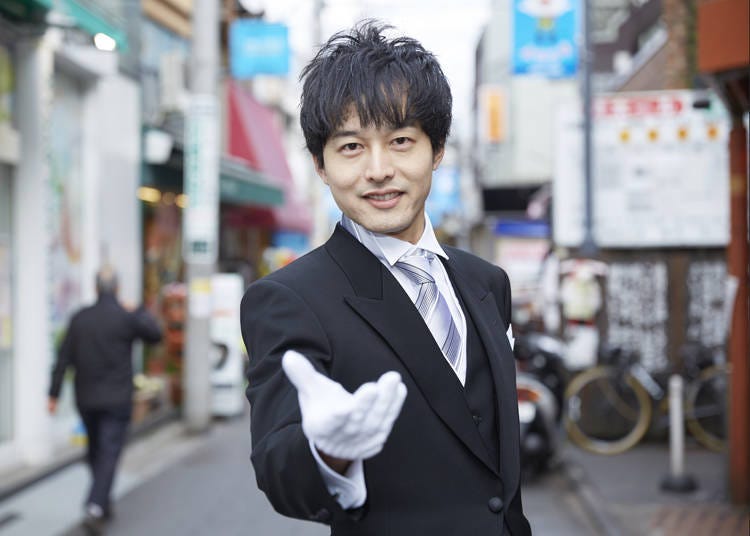
At Tomioka Hachiman Shrine
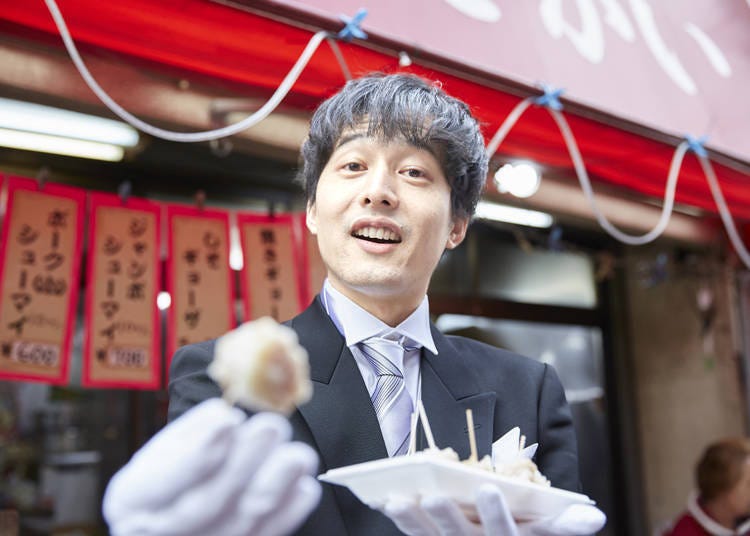
At Sunamachi Ginza Shotengai
Photo: Ishikawa Yoshikazu
Born in 1981 in Kanagawa Prefecture’s Yokosuka City. Working as a freelance photographer who focuses on portraits for magazine advertisements.
Model: Keira Ashley
*This information is from the time of this article’s publication.
*Prices and options mentioned are subject to change.
*Unless stated otherwise, all prices include tax.





















Discussion about this post